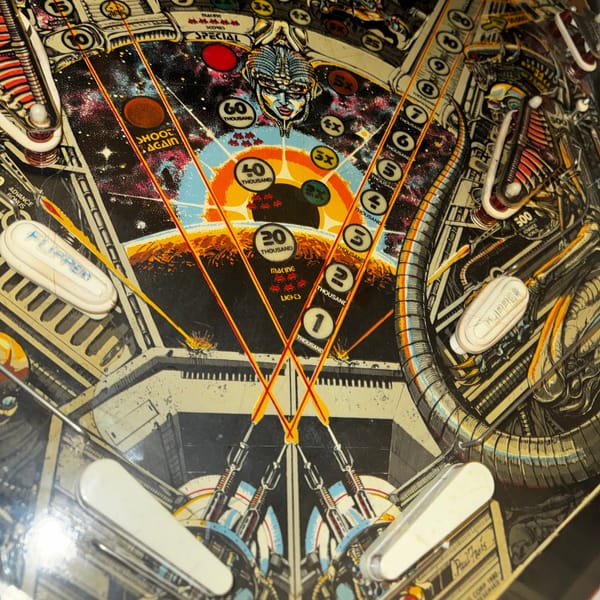How a Family Board Game Became the Perfect Metaphor for Inequality
Monopoly doesn’t just predict capitalism. It simulates it, from OPEC to Wall Street to the IMF.

When Lizzie Magie patented The Landlord’s Game in 1903, she intended it as a critique of land monopolies. Her “prosperity rules” promoted fair taxation and shared wealth, while the “monopoly rules” demonstrated how inequality spirals out of control. By the time Parker Brothers mass-marketed Charles Darrow’s version in 1935, only the monopoly rules remained. The cautionary tale became the world’s best-selling ode to accumulation. That pivot alone is a capitalist masterclass: take a critique, commodify it, and sell it as entertainment.
Railroads and Oil Cartels
In Monopoly, owning all four railroads gives you leverage over everyone else. No matter where players land, you’re extracting rent from the arteries of the board. Translate that to real life, and it’s OPEC. Controlling a critical input—oil, in this case—lets a cartel dictate global prices. In the 1970s, OPEC’s coordinated embargo quadrupled oil prices, sending shockwaves through every industrial economy. Just as in Monopoly, those without the assets had no choice but to pay up.
Utilities are even closer to reality. Water Works and Electric Company look small, but in regions where utilities are privatized, whoever controls them can extract disproportionate rents. In South Africa during apartheid, access to water was explicitly rationed, with utilities reinforcing inequality. Today, tech monopolies like Amazon Web Services and Google Cloud are the new “utilities”—infrastructure so essential that competitors must rent space to survive.
Chance, Community Chest, and IMF Bailouts
Monopoly’s Chance and Community Chest cards can bankrupt you with a bad draw—or give you unexpected windfalls. They’re unpredictable, external shocks that mimic recessions, windfalls, or bailouts.
Take the 1997 Asian Financial Crisis. When Thailand’s currency collapsed, global markets panicked, and the IMF stepped in with bailout packages. But those loans came with austerity conditions: spending cuts, privatizations, and painful reforms. For the weaker economies, landing on “Go to Jail” wasn’t just bad luck—it was compounded by structural vulnerability. In Monopoly, you pay the bank; in global economics, you pay international creditors, often forever.
Hotels, Real Estate, and the Housing Crisis
The endgame of Monopoly is hotels. Build them on Boardwalk or Park Place, and one unlucky roll by another player means instant bankruptcy. That’s property speculation in miniature.
Now compare this to the 2008 housing crisis. U.S. banks bundled subprime mortgages into financial instruments, creating skyscrapers of leverage. When the crash came, millions lost homes while banks were bailed out. Wealth didn’t disappear—it consolidated. In many cities, private equity firms swooped in, buying foreclosed houses en masse, turning neighborhoods into rental monopolies. Just like Monopoly, where one player ends up with all the hotels, entire regions became controlled by a few corporate landlords.
Free Parking, Stimulus, and Social Safety Nets
Many families use the “Free Parking jackpot” rule, piling fines and taxes in the middle until a lucky player lands there. That’s not in the official rules—it’s a house hack to keep the game fun. But it’s also a metaphor for fiscal policy.
During COVID-19, governments around the world injected trillions of dollars into economies to prevent collapse. In the U.S., stimulus checks and enhanced unemployment acted like a giant Free Parking payout, keeping people in the game. Yet, just like in Monopoly, these injections didn’t restructure the rules. Wealth inequality actually accelerated during the pandemic: U.S. billionaires gained nearly $2 trillion between March 2020 and October 2021, while low-income workers scrambled to survive.
Global Trade and Intellectual Property
In Monopoly, Boardwalk and Park Place are outliers. They’re rare spaces, but if you control them, you can bankrupt opponents in one roll. Today, intellectual property plays that role.
Pharmaceutical patents during COVID became a Boardwalk-level issue. Wealthy nations and a handful of firms controlled vaccine formulas, extracting rents while poorer countries waited. Similarly, Big Tech monopolies—Google’s search dominance, Apple’s App Store fees, Microsoft’s software licensing—turn digital chokepoints into modern-day Boardwalks. Everyone uses them, and everyone pays.
The Rage-quit as Revolution
Monopoly rarely ends with a triumphant winner. More often, it ends when players quit out of frustration. That rage-quit is the closest the game gets to revolution. In global economics, the same dynamic shows up in populist uprisings, debt defaults, and even wars. When inequality becomes unbearable, participants leave the system—sometimes peacefully, sometimes not.
But here’s the catch: just like in Monopoly, the board almost always gets reset. After defaults, bailouts, or revolutions, the global economy reconstitutes itself, with the same fundamental rules intact. It may shuffle the pieces, but the logic of accumulation remains.
Capitalism in a Box
The genius of Monopoly isn’t that it critiques or glorifies capitalism. It’s that it embodies it. Equal starts, compounding advantages, asset monopolization, fiscal hacks, inequality spirals, and ultimate consolidation—all compressed into a few hours on a rug.
It’s no wonder the game feels exhausting. It’s capitalism on fast-forward.




